Nobody at Cafe Baba knew who they were. The Moroccan man who first brought them there carried a gold hashish pipe. They smoked and dressed just like many Westerner hippies. In typical Interzone fashion, nobody asked any questions.
Years later, a photograph arrived in the mail of Keith Richards lighting up a pipe at one of Cafe Baba’s tables. Those “hippies” had been the Rolling Stones.
Videos by VICE
In the 76 years Cafe Baba has perched above Tangier’s medina, the Rolling Stones have been just some of the cafe’s many high-profile clients. The cafe has served the kings of both Spain and Sweden; the Grand Duke of Luxembourg; former Secretary-General to the United Nations, Kofi Annan; punk rock legend Patti Smith; numerous actors and filmmakers, such as Daniel Auteuil and Jim Jarmusch; and dozens of mid-20th-century aristocrats.
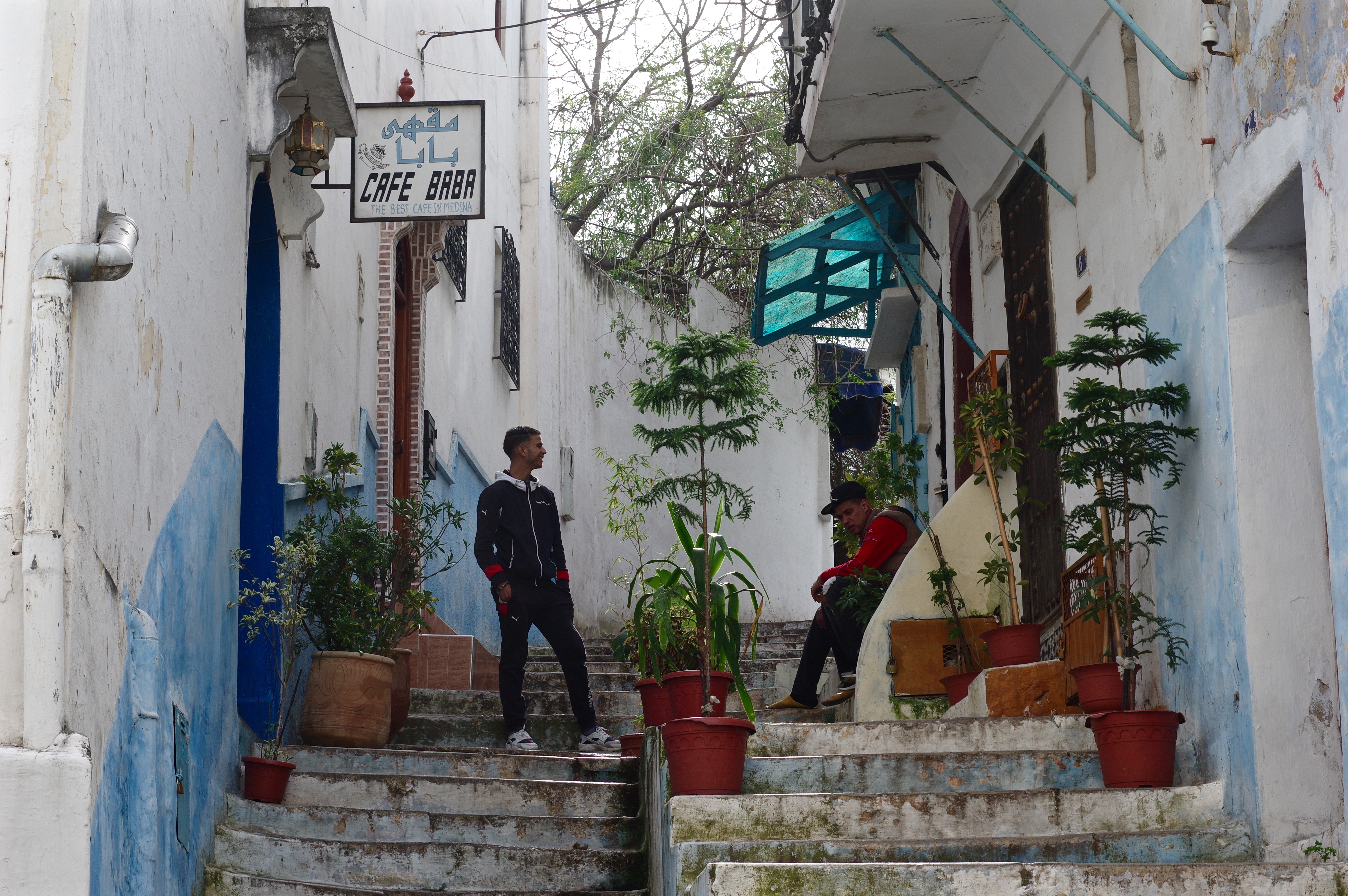
Outside Cafe Baba in Tangier. All photos by the author.
When I asked, several of the cafe’s Moroccan clients had no idea what famous rumps have warmed the cafe’s cushions. Even when told, they didn’t seem to care. They come to drink tea, smoke kief, and play Parcheesi or “Parchi.” (Think “Sorry!” but older.) To them, Cafe Baba is a hashish spot first, celebrity landmark last.
A longtime patron lit his foot-long sebsi, a traditional Moroccan cannabis pipe, and explained the loose social territories of the cafe. Older medina locals tend to sit in the area near the door with their own sebsi. Younger Moroccans and those from out of town roll their spliffs by the tables under the TV or up in the cushioned alcove. Foreigners tend to gravitate towards the narrow windowed terrace that overlooks the medina and the bay beyond—I can see why.
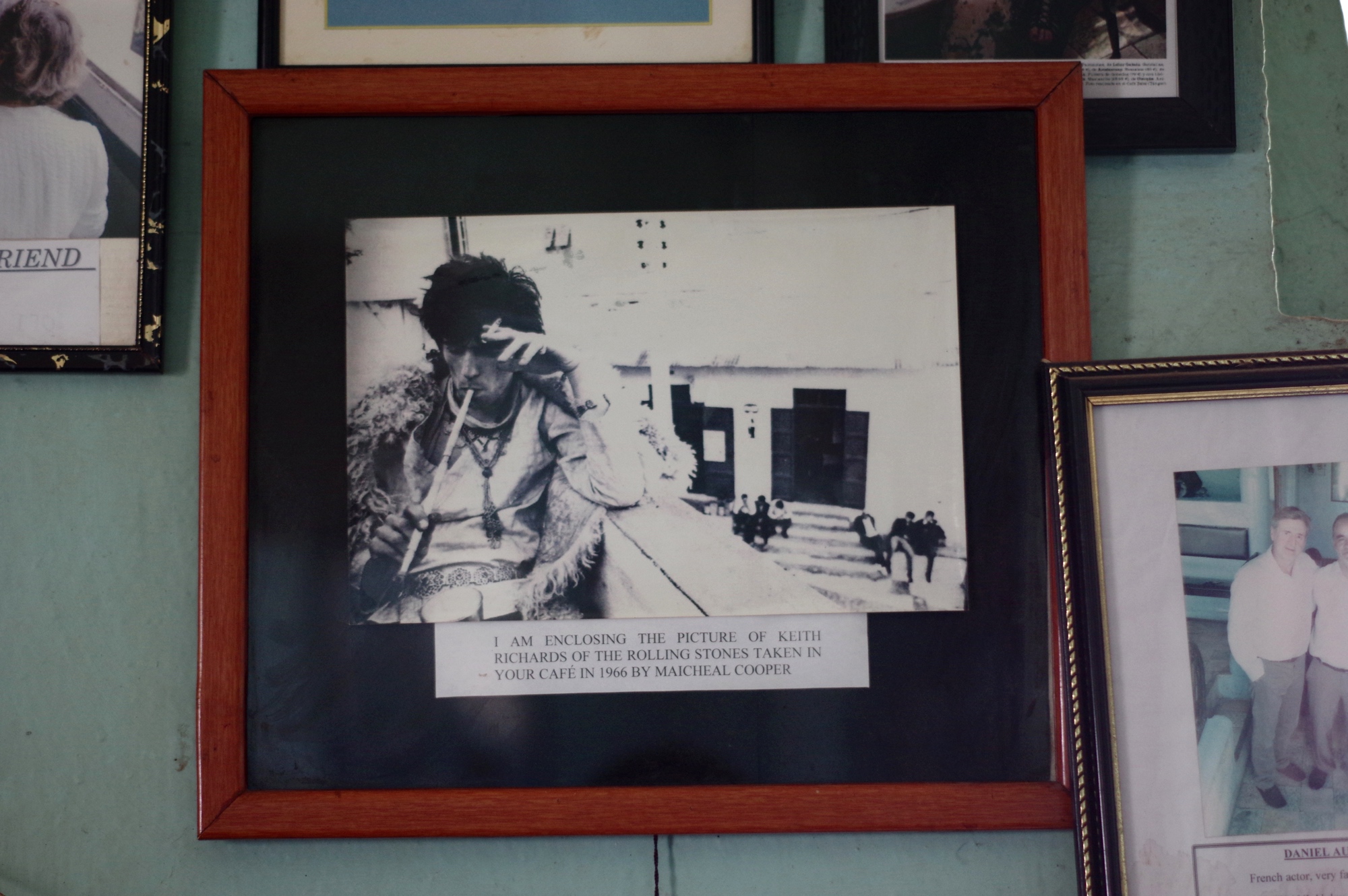
Working the burners behind the counter is Absalam Aoufi, great-grandson of the cafe’s founder, Ayashi Aoufi. Absalam’s father and current owner Abdoulgani “Abdoul” Aoufi sits near the door among locals and friends, calmly watching over his cafe from beneath stormy eyebrows.
The Aoufis run their cafe according to a tried-and-true formula: tea, coffee, and a smoke-what-you-like policy. The coffee is the Turkish kind with a heavy band of sediment at the bottom.
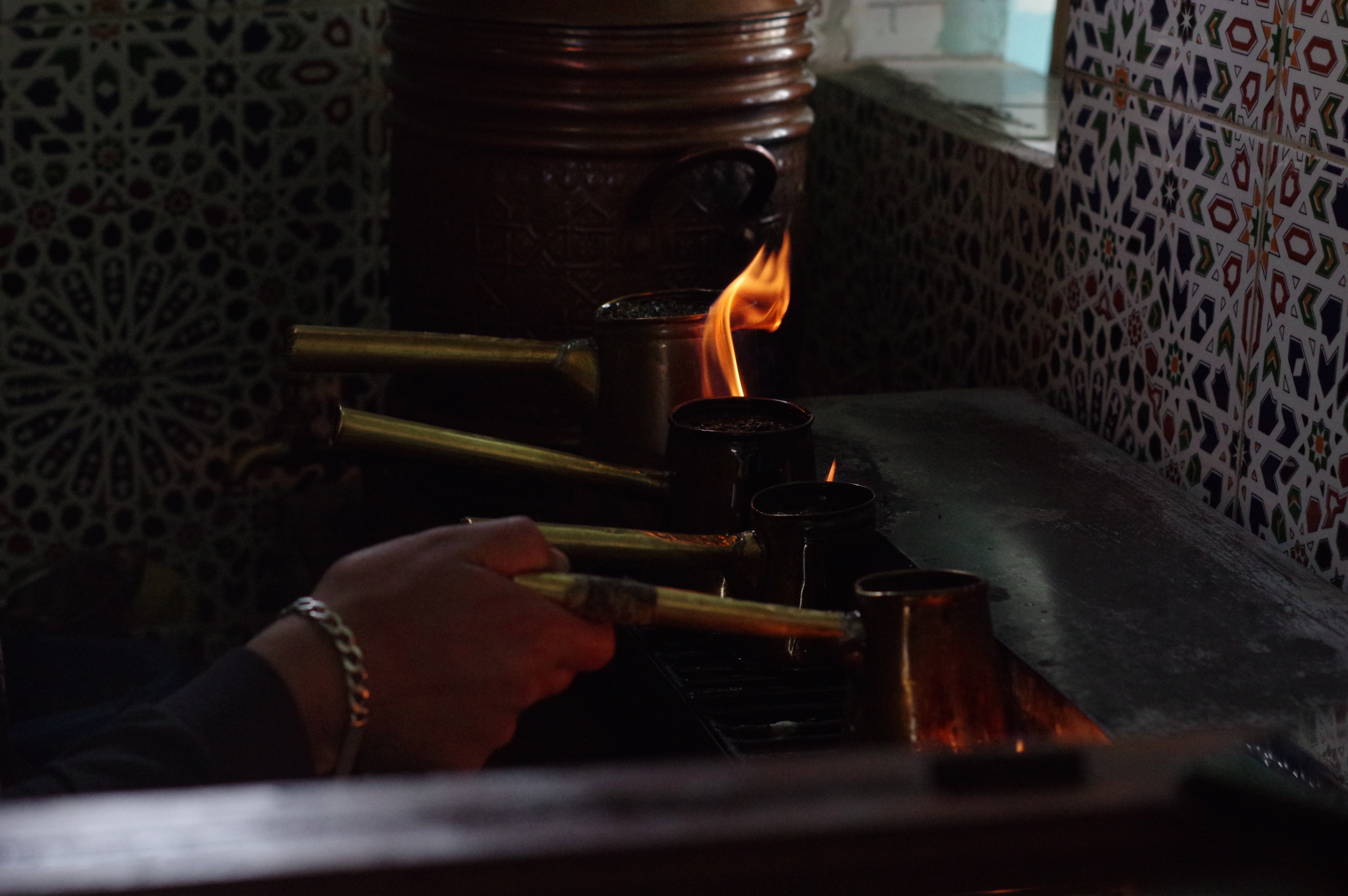
The tea is the Moroccan standard: mint, sweetened to the point that it nearly sparkles. The smoke is largely hashish, or kief—cousins of weed. The whole cannabis family has been banned from Morocco since 1956, but carrying a personal dose rarely lands you in trouble especially if you’re a tourist—especially if you’re at Cafe Baba.
Abdoul’s grandfather opened the cafe in 1941. A pair of 70-something-year-old coffee tables are covered in etchings of fishing boats and sharks harkening back to the cafe’s early days as a fisherman’s haunt.
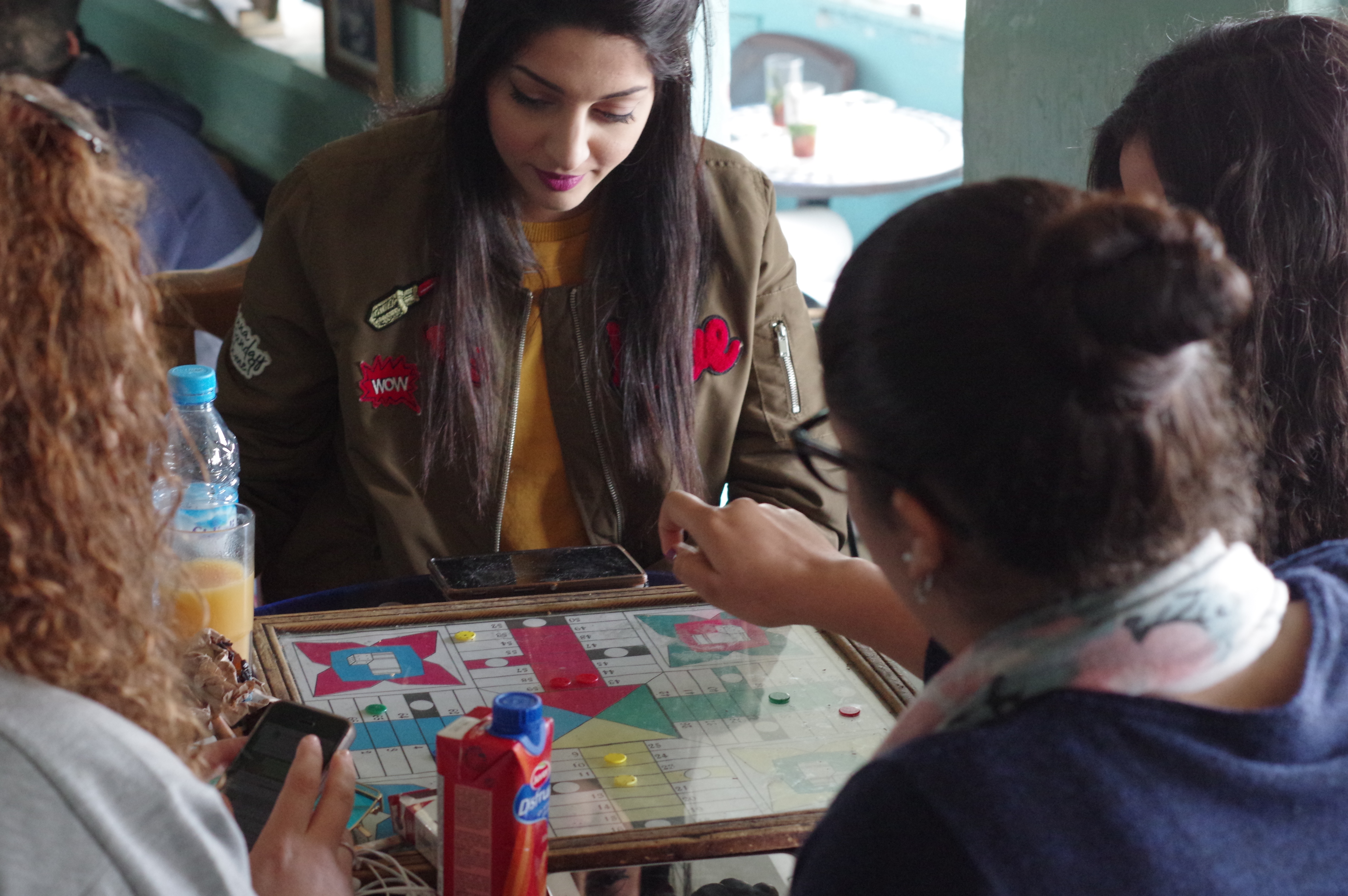
In those years, younger Moroccans rarely frequented cafes. Women never went. But one summer in 1946, a young woman appeared among the fishermen—not just any woman, but an American heiress and socialite named Barbara Hutton.
During the day, Hutton would take tea on the balcony and at night she descended to her Tangier villa to throw decadent parties. “The Queen of the Medina,” as Hutton came to be known, spent her summers in Tangier until 1974, and during that time she sent many a visitor up to Cafe Baba to take tea or smoke hashish. The cafe’s reputation grew among the international community, attracting expat intellectuals, artists, and rock stars like the Rolling Stones. “Clever hippies,” as Abdoul calls them.
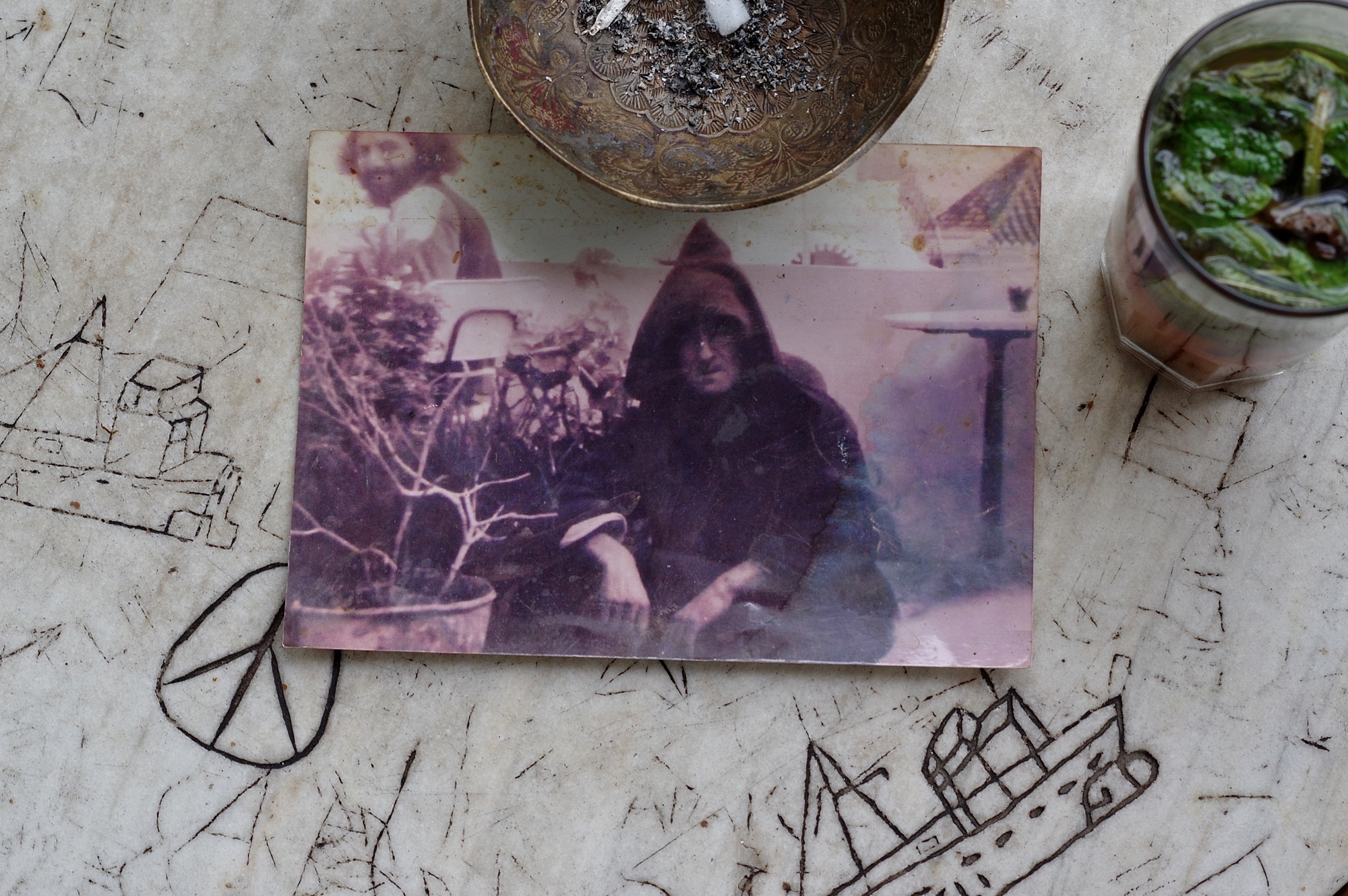
Change seems to come in bursts to Cafe Baba. The next era of change came when Abdoul came back to Tangier from Gibraltar in 1996 to take over Cafe Baba after his father died.
At the time, the whole country was changing hands—father to son. King Hassan II died in 1999 and his son, Mohammad VI, took power. The new generation brought new ideas, and as the country modernized so did Cafe Baba. Abdoul cleaned house, ridding the place of questionable characters and opening the doors to a younger generation of Moroccans, students, and even Moroccan women.
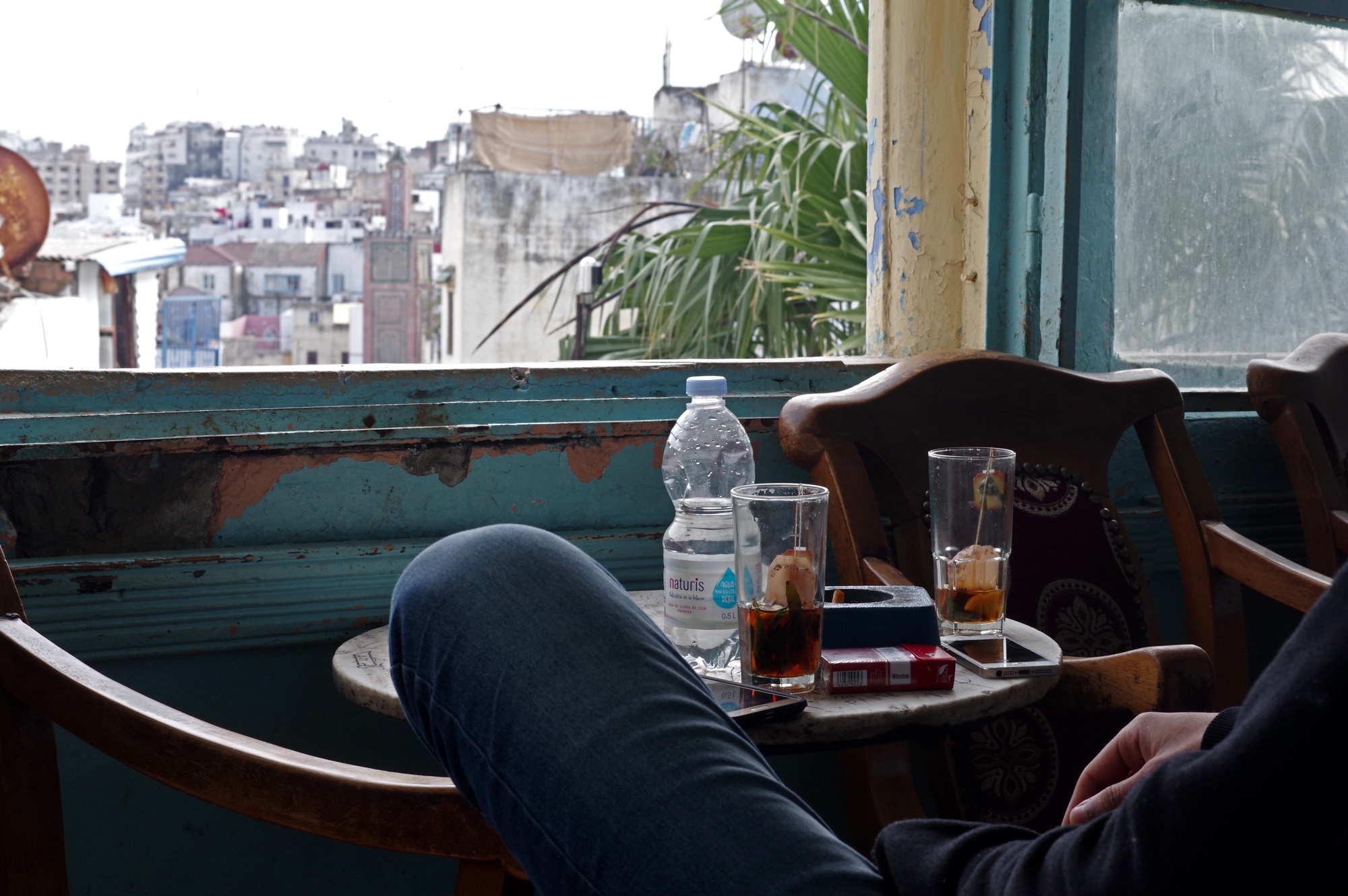
In his father’s time, “If a girl came to the cafe,” explains Abdoul, “everyone knows this girl is no good.” Now if a woman comes to sit alone Abdoul tries to ensure no one disturbs her.
These days, the younger generation mixes with the older. So do their playlists. In the mornings you hear rock and trap; in the evenings, Moroccan classics. Once I heard Drake rapping over a traditional Gnawa beat.
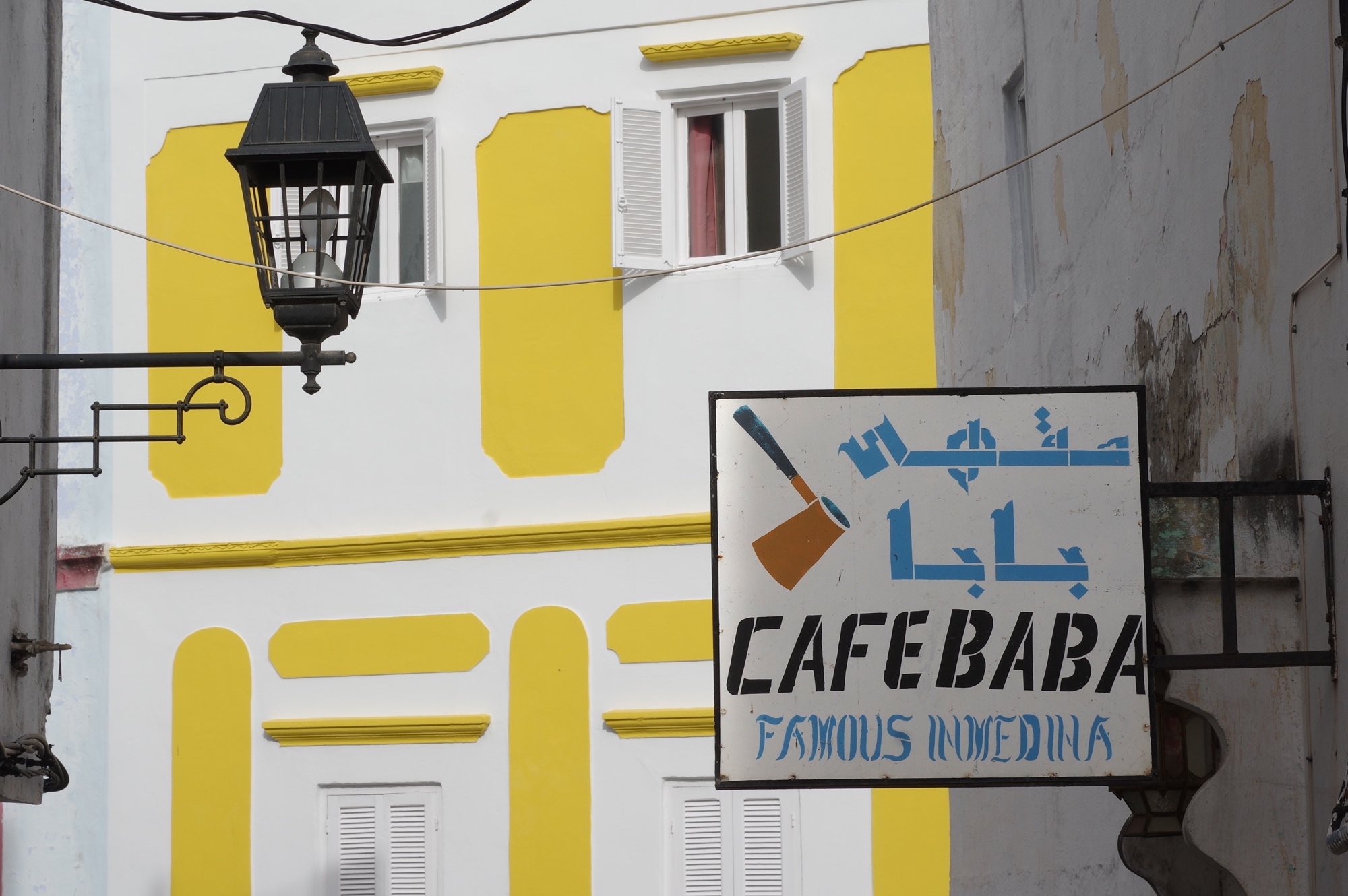
Despite Cafe Baba’s star-studded history and its appearance on Anthony Bourdain: Parts Unknown, the place is relatively untouched by tourists. From time to time a backpacker or Rolling Stones pilgrim materializes in the kief smoke, but otherwise the place remains primarily a local spot. Abdoul wants to keep it that way.
“A lot of people have tried to buy this cafe for a lot of money,” Abdoul says. Time and again he’s refused. “Everybody knows my business. And it was the business of my father before me.” What’s more, Moroccans now know who the Rolling Stones are. And some even know that they went to Abdoul’s cafe. Not just a family business, Cafe Baba is a family heirloom—a part of Tangier heritage.
“If I sold it,” says Abdoul, “I think I’d go crazy.”
More
From VICE
-

Illustration by Reesa -

Screenshot: GSC Game World -

Screenshot: Bethesda Softworks -

Screenshot: Shaun Cichacki
